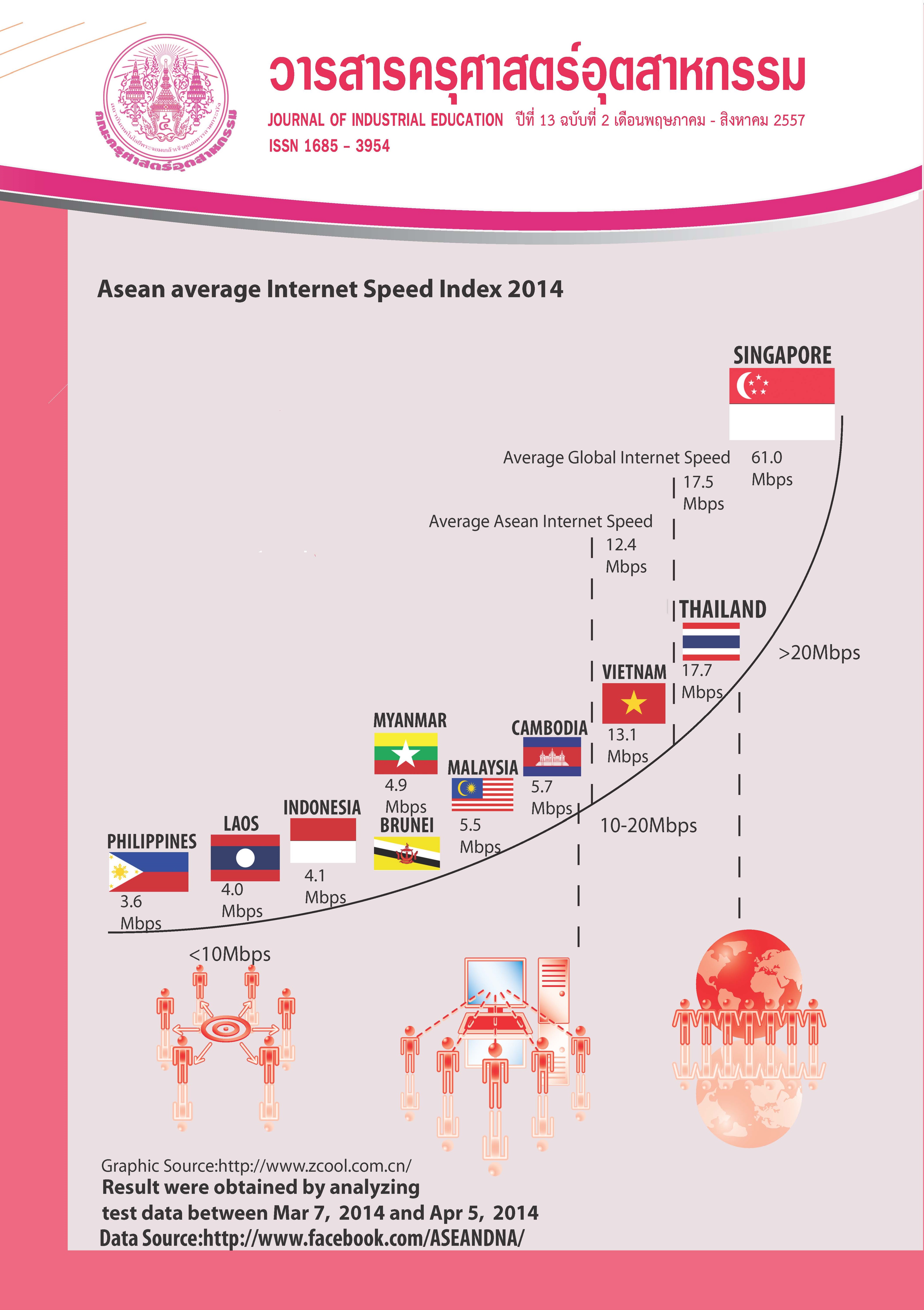Buddhist Based Learning Module for Organic Rice Farmer on Post Harvest Management
Keywords:
Buddhist based learning, organic rice, Post Harvest Management, module, learningAbstract
The objectives of this research were to : 1) construct the Buddhist based learning module for organic rice farmer on Post Harvest Management and 2) compare learning outcomes of organic rice farmer group before and after using of the Buddhist based learning module for organic rice farmer on Post Harvest Management.
This research was One Group Pretest – Posttest Design. The samples were 23 voluntary organic rice farmer members of organic farming enterprise community in Bann Tharae, Amphoe Agasamnuay Sakonnakorn. The instruments for gathering data were: 1) the instrument for studying of the context and problem situations of the organic rice farmer group titled “Post Harvest Management” consisted of the interview form and the behavioral observation form. 2) the instrument for experimentation consisted 6 lesson plans based on Buddhism teaching method, and 3) the instrument for evaluating of learning outcomes of the organic rice farmer group consisted of the knowledge test, the process skill test and the opinion test titled “Post Harvest Management”. The analyzing statistics were frequency, percentage, mean and standard deviation.
The results of this research found that 1) The Buddhist based learning module for organic rice farmer on Post Harvest Management has six units and each unit consisted of objectives, contents and learning activities based on four Buddhism teaching methods as follow: (1) San-Tad-Sa-Na, the clear explanation until one could understand, (2) Sa-Ma-Ta-Pa-Na, demonstration for viewing the truth as well as accepting and following it by practicing, (3) Sa-Moot-Ted-Cha-Na, stimulation to be enthusiastic by using situation facing, and (4) Sam-Pa-Hang-Sa-Na, the game playing activities were used for pleasure of practicing, and 2) The learning outcomes of organic rice farmer group after using of the Buddhist based learning module for organic rice farmer on Post Harvest Management were changed more than the learning outcomes before using of the learning module in term of the knowledge, the process skill and the opinion.
References
[2] สถาบันวิจัยข้าวอินทรีย์.2542. หลักการผลิตข้าวอินทรีย์. กลุ่มงานส่งเสริมและพัฒนาเกษตรอินทรีย์ สำนักพัฒนาคุณภาพสินค้าเกษตรกรมส่งเสริมการเกษตร.
[3] สำนักงานมาตรฐานสินค้าเกษตรและอาหารแห่งชาติ.2550.มาตรฐานเกษตรอินทรีย์. นนทบุรี : สำนักงานมาตรฐานเกษตรอินทรีย์.
[4] ศูนย์วิจัยกสิกรไทย.2554.“ข้าวอินทรีย์: ศักยภาพการตลาดที่เติบโตอย่างต่อเนื่อง”.[ออนไลน์].เข้าถึงได้จากhttps://www.positioningmag.com (วันที่ค้นข้อมูล 5 กรกฎาคม 2554).
[5] สังคม เตชะวงศ์เสถียร. 2547. วิทยาการหลังเก็บเกี่ยวของพืช. ขอนแก่น : ภาควิชาพืชสวน มหาวิทยาลัยขอนแก่น.
[6] บุญดิษฐ์ วรินทร์รักษ์และคณะ. 2550. รูปแบบการผลิตพืชสำหรับข้าวหอมมะลิไทยอินทรีย์. กรุงเทพฯ : กรมการข้าวกระทรวงเกษตรและสหกรณ์.
[7] ลือชัย โพธิ์วิชัย. 2544. การพัฒนาและศึกษาผลการใช้บทเรียนทางไกลผ่านเครือข่ายอินเทอร์เน็ต เรื่องการควบคุมมอเตอร์ไฟฟ้า.บัณฑิตวิทยาลัยครุศาสตร์ อุตสาหกรรม มหาวิทยาลัยเทคโนโลยีพระจอมเกล้าธนบุรี.
[8] พระธรรมปิฎก (ป.อ. ปยุตฺโต). 2547. พุทธวิธีในการสอน. กรุงเทพฯ :ธรรมสภา และสถาบันบันลือธรรม.
[9] บุญชม ศรีสะอาด. 2545. การวิจัยเบื้องต้น. พิมพ์ครั้งที่ 7. กรุงเทพฯ : สุวีริยาสาส์น.
[10] บุญเกื้อ ควรหาเวช. 2543. นวัตกรรมการศึกษา.กรุงเทพฯ : ศูนย์หนังสือจุฬาลงกรณ์มหาวิทยาลัย.
[11] อรทัย สมใส. (2546). ความต้องการฝึกอบรมการผลิตข้าวอินทรีย์ของเกษตรกรในจังหวัดสุรินทร์. บัณฑิตวิทยาลัย สาขาวิชาส่งเสริมการเกษตร มหาวิทยาลัยขอนแก่น.
[12] อารยา มุสิกา.2556. พุทธปรัชญากับการศึกษาไทย. วารสารครุศาสตร์อุตสาหกรรม,12 (2), น.205 – 210.
[13] สุรพล วิบูลย์ญาณ.2554.ทัศนคติการทำนาแบบเกษตรอินทรีย์ของชาวนาในพื้นที่องค์การบริหารส่วนตำบลหัวดง อำเภอเมือง จังหวัดพิจิตร. บัณฑิตวิทยาลัย สาขาวิชานโยบายสาธารณะ มหาวิทยาลัยนเรศวร.
[14] ยุวนุช กุลาตีและคณะ. 2556. การประยุกต์ใช้อีเลิร์นนิ่ง (e-Learning) ช่วยในการจัดการความรู้ให้กับเกษตรกรกับการผลิตข้าวแบบเกษตรอินทรีย์. คณะวิทยาการจัดการและเทคโนโลยีสารสนเทศ มหาวิทยาลัยนครพนม.
[15] ยงยุทธ ศรีเกี่ยวฝั้นและคณะ. 2555. การส่งเสริมการทำเกษตรอินทรีย์และการบริหารจัดการศัตรูพืชโดยวิธีผสมผสานของเกษตรกรในอำเภอสันทราย จังหวัดเชียงใหม่. เชียงใหม่ : มหาวิทยาลัยแม่โจ้.
[16] Speck, M. 1996. Best practice in professional development for sustained educational change. ERS Spectrum
[17] Vella, J. 1994. Learning to Listen, Learning to Teach. San Francisco : Jossey Bass.
[18] สุวัฒน์ วัฒนวงศ์. 2544. จิตวิทยาเพื่อการฝึกอบรมผู้ใหญ่. กรุงเทพฯ : ธีระป้อมวรรณกรรม.
[19] ศุภชัย สุทธิเจริญ. 2551. การยอมรับการปลูกข้าวอินทรีย์โดยใช้ข้าวกล้องพันธุ์หอมแดงของเกษตรกร ในอำเภอบำเหน็จณรงค์ จังหวัดชัยภูมิ. บัณฑิตวิทยาลัย สาขาวิชาส่งเสริมการเกษตร มหาวิทยาลัยเชียงใหม่.
[20] อภิชิต ตานะเศรษฐ์. 2553. สู่การเรียนรู้ตามกระบวนการ “โรงเรียนเกษตร”. [ออนไลน์]. เข้าถึงได้จาก https://www.tissue.agriqua.doae.go.th. (วันที่ค้นข้อมูล 23 พฤษภาคม 2555).
Downloads
Published
How to Cite
Issue
Section
License
"The opinions and contents including the words in papers are responsibility by the authors."
"ข้อคิดเห็น เนื้อหา รวมทั้งการใช้ภาษาในบทความถือเป็นความรับผิดชอบของผู้เขียน"



